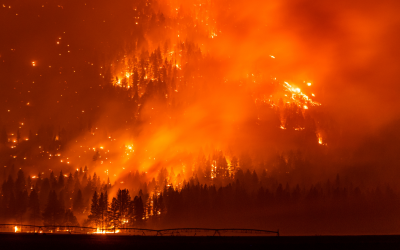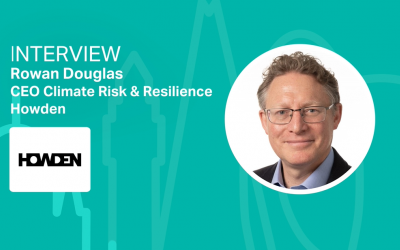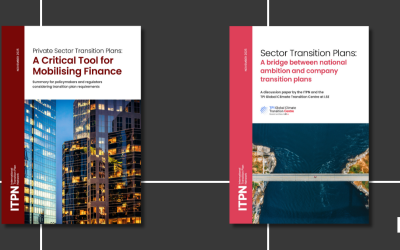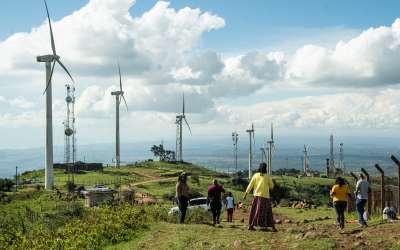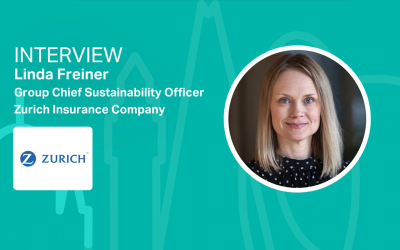Angeles Toledo Rodriguez and Greig Blackie on financing renewable energy in emerging markets
Angeles Toledo Rodriguez, winner of the Women Smart Energy Finance Award 2021, and Greig Blackie from Triodos Investment Management talk to Climate Action about how several trends build a strong case for investing in renewable energy in emerging countries, from the triple perspective of impact, risk and return.
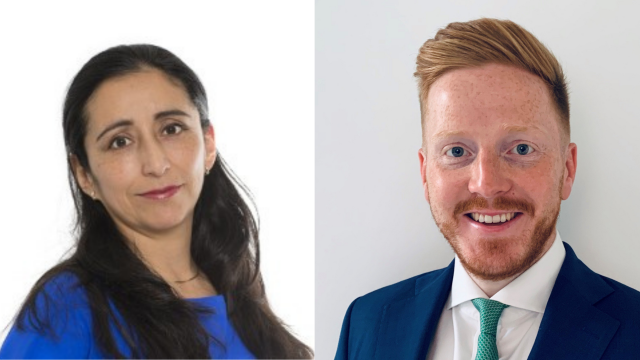
The Powerful Potential of Financing renewable energy in emerging markets
Angeles Toledo Rodriguez, winner of the Women Smart Energy Finance Award 2021, and Greig Blackie from Triodos Investment Management talk to Climate Action about how several trends build a strong case for investing in renewable energy in emerging countries, from the triple perspective of impact, risk and return.
What are the underlying trends benefits to your investment portfolio for financing renewable energy in emerging markets?
Emerging markets and developing countries are facing a dual challenge. On the one hand, they are particularly vulnerable to climate change, lacking the financial power to prevent or adequately respond to the impacts of climate change. On the other hand, a dependable and affordable energy supply is crucial to further socio-economic development. These investments help reduce CO2, so needed if we want to reach the Paris Agreement 2 degree scenario. We also help increase the share of renewable energy in the world.
Financing renewable energy in emerging markets requires expertise, experience and a strong network. At Triodos Investment Management we have all three, built up in many years investing in many different projects. By investing in renewable energy in emerging markets we generate triple impact with each investment: we stimulate social and economic development, and we contribute to a sustainable energy transition.
Can thorough risk assessment minimise negative impacts?
Investing comes with risks. Systemic risks, either economic or political, are inherent in investing in emerging markets. The environmental and social risks also need a careful assessment, especially those of utility-scale projects. Possible negative impacts must always be compensated, for example by replanting trees or relocating people, or by making sure that communities directly benefit from the project.
For us, the environmental and social risk assessment is extremely important. There is more needed than simply doing your homework if you intend to have a positive impact on local communities. In addition to applying strict ESG criteria, we aim to achieve this positive impact by both improving the access to affordable energy – which is our priority - and by identifying potential development opportunities, together with the developer or owner of the project, which bring social and economic benefits to the community.
How important is it to have fall back scenarios?
It is crucial to have knowledge about the renewable energy markets in emerging countries - for example about fall-back scenarios or insurances when a client cannot pay back the loan - and have a strong network of trusted partners. This is not something you can build up overnight. We have a track record of more than 20 years of financing projects in emerging countries and more than 30 years in financing renewable energy projects. This combined knowledge is firmly anchored in our funds and in every transaction we do.
As we usually enter a contract for at least 15 years, we agree on a set price with the off taker of the energy”, Toledo continues. “This is usually the national electricity company, owned or backed by the government. Working with a good network of partners we enjoy strong structures and negotiation power should it be needed. To mitigate currency risks, we always hedge our positions in local currencies. In addition, some of the institutions benefit from a preferred creditor status, which also benefits us when cooperating with them. The combination of a well-balanced portfolio across technologies, financial instruments and geographies results in an acceptable risk profile and a solid return for investors.
How have Triodos Investment Management set an example?
But most importantly: we must walk the talk. It is one thing to talk about urgency and opportunities, but we must also act. Nearly 40 years ago, in the early 80s, we financed the first wind turbines in the Netherlands, and today we are still a pioneer in the energy transition. On top of that, Triodos is for the fifth consecutive year the most active worldwide in terms of number of transactions. It is now time to increase our impact on financing the energy transition in emerging markets and inspire others to join us and unlock more funding.
Learn more
Do you want to learn more about investing in Renewable Energy in Emerging Markets, the instruments Triodos Investment Management uses and the role it can play in your portfolio? Download an interesting strategy paper from Triodos Investment Management here and find out.
Download the paper here.


